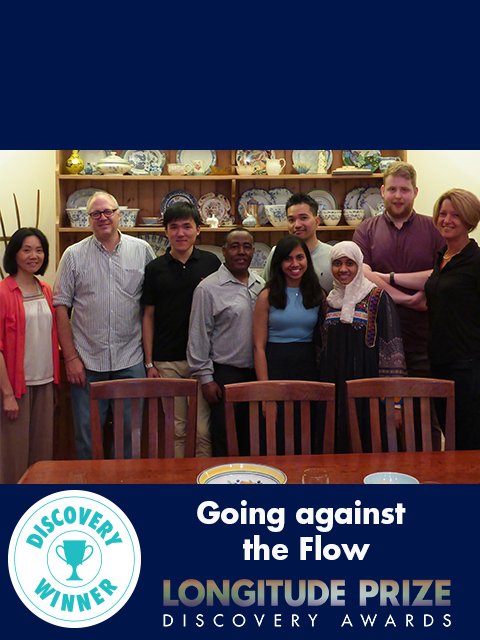This team successfully won a Discovery Award seed-funding grant to help further develop their ideas for their Longitude Prize application and create a diagnostic test that helps solve the problem of global antibiotic resistance. Below we have asked them to explain their test and motivation for applying.
Please explain your test.
We are developing a test that detects the body’s response to infection by measuring changes in white blood cells called neutrophils. Neutrophils are one of our body’s first lines of defense against infections, as they are constantly surveying the body for invading bacteria and responding when they find something wrong. Our test will use a drop of blood to identify the “activated” neutrophils that indicate the presence of severe infections that can lead to sepsis, or “blood poisoning”.
Please share a more detailed description of this work from a medical professional’s perspective.
We are working on a point-of-care test that can detect the activation of neutrophils to enable early detection and treatment of sepsis. In our test we are not detecting infection directly. We are instead relying on the body’s sensitive and rapid response to bacterial infections using novel, yet simple methods to detect this early response by neutrophils. This test would allow greatly reduced use of broad-spectrum antibiotics that are administered when sepsis is suspected but can’t be ruled out by current tests that are not sensitive enough, and/or take too long to give a result.
Why did you apply and what will the Discovery Award funding be used for in your work?
We have recently made a breakthrough in our studies towards a sepsis diagnostic test, but we are running out of funds to purchase necessary test kits and reagents to continue the work. In addition we feel that the novel approach we have developed offers significant promise for improved antimicrobial stewardship.
We are recruiting patients with sepsis as well as healthy controls, and testing blood samples for markers of neutrophil activation. Most of the funding will be used for purchasing commercially available test kits and the remainder for purchasing reagents that can allow us to move from commercial, lab-based tests to the development of point-of-care tests. We have extensive experience in making this transition for a range of other diseases.
What difference will your work make in the long term with regards to antimicrobial diagnostics?
Our work will directly lead to a sensitive point-of-care test for detecting the earliest immune responses to sepsis. By having a sensitive and specific test that can detect these early signs, clinicians will be confident to “rule out” the need for presumptive, broad-spectrum antibiotic use in patients who may present with nothing more than a fever, thereby reducing over-use of antibiotics, while also improving the appropriate early treatment of sepsis.
If there is a design for a prototype, please describe it and how it will work.
The test will be a simple lateral-flow immunochromatographic test, similar to the Visitect(R) CD4 test developed by our lab and now commercialised by Omega Diagnostics, which measures CD4 protein from T-cells in whole blood, detected as a visible line on the test device which is compared to a reference line. The sepsis test will instead measure two neutrophil proteins which will be compared to each other as well as to a reference (that is, 3 visible lines in total). The result will be obtained by eye, but a simple hand-held instrument is also available that will help to calculate the test result and give improved confidence and training to healthcare workers.
Who is on your team?
A/Prof David Anderson
Riya Palchaudhuri
Prof Suzanne Crowe AM
Mary Garcia
Dr Clovis Palmer
Shirley Vallance
Dr Steve McGloughlin
If you are interested in collaborating with this team, please email us.

